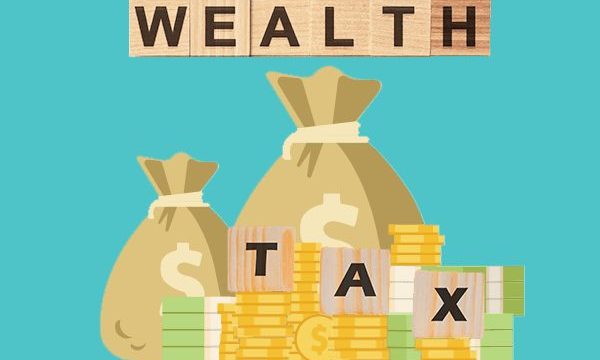Money Is Broken... Help!
The global economy is on a knife’s edge. Debt is piling up, the rich refuse to be taxed, the poor can’t be squeezed any further, and economic growth has seemingly hit a wall. Every system, from capitalism to socialism, is showing its cracks. Governments and central banks scramble for answers, but the truth is becoming harder to ignore—our financial system is broken.
We’re running out of ways to make money work for the world, and if we don’t find a solution soon, the consequences will be dire. Inflation soars, wages stagnate, wealth gaps widen, and entire populations are left wondering how they’ll afford their next meal, let alone plan for a stable future. We’ve entered an era of financial dysfunction where the rules that once governed money no longer seem to apply. The question is: What happens now?
A Broken System No One Wants to Fix
Governments used to rely on economic growth to fix their problems. A growing economy meant more jobs, higher wages, increased consumer spending, and ultimately, more tax revenue. But what happens when growth stalls? We’re seeing it now: debt balloons, services crumble, and inequality explodes. Those at the top, benefiting from a system designed in their favour, refuse to pay more, while those at the bottom are already stretched beyond their limits.
The standard response to economic downturns—printing more money—has only made things worse. The pandemic proved that mass stimulus packages and endless debt creation may keep the system running for a while, but they don't solve the core problem: money itself isn't working the way it should. When cash loses value faster than wages rise, the gap between the ultra-wealthy and everyone else turns into an abyss.
Too Much Debt, Too Little Time
The numbers are staggering. Global debt is at an all-time high, surpassing $300 trillion. Governments, businesses, and households are drowning in obligations they can’t afford to pay. Interest rates were artificially low for years, encouraging reckless borrowing. Now, as central banks raise rates to fight inflation, that debt becomes impossible to service. Countries like the U.S., which once had a manageable debt-to-GDP ratio, are now running out of options. Printing more money fuels inflation, raising taxes is politically toxic, and spending cuts lead to social unrest.
For individuals, it's even worse. Student loans, credit card debt, medical bills—many people are trapped in financial prisons with no escape. The dream of homeownership has slipped away for an entire generation, and wages simply haven’t kept pace with the cost of living. The system isn’t just failing; it’s actively pushing people toward financial ruin.
Why Can’t We Tax the Wealthy?
One of the most obvious solutions—making the ultra-rich pay their fair share—seems impossible. Billionaires and multinational corporations have turned tax avoidance into an art form. Offshore accounts, loopholes, political lobbying—all ensure that those who have the most contribute the least. The wealthiest 1% own more than half of the world’s assets, yet many pay a lower effective tax rate than the average worker.
Why? Because those with money control the system. They fund political campaigns, influence policy, and ensure that any attempt to increase their tax burden is met with fierce resistance. Governments fear capital flight—if they tax the rich too much, businesses and billionaires simply move their money elsewhere. And so the cycle continues, with the middle and working classes shouldering the burden while the richest get richer.
Can’t Tax the Poor Either
If the rich won’t pay more, the only alternative is taxing the poor and middle class further. But that’s not a real option. With wages stagnating and costs rising, millions are already living pay day to pay day. In many parts of the world, basic necessities like food, housing, and healthcare are unaffordable for a significant portion of the population. Higher taxes would only push people further into poverty, triggering mass unrest.
This leaves governments stuck. They need revenue to function, but they can’t get it from the wealthy and can’t take more from the struggling majority. The result? More debt, more inflation, and more dysfunction.
Economic Growth Has Stalled—Now What?
Traditional economic wisdom tells us that growth solves everything. But what if growth itself has reached its limit? Many economists are warning that we’re entering a period of "secular stagnation," where innovation and productivity improvements no longer drive the kind of exponential growth seen in previous generations.
Automation and artificial intelligence are replacing jobs faster than new ones can be created. Climate change is disrupting supply chains, agriculture, and entire industries. Population growth is slowing in many major economies, leading to labour shortages and an aging workforce. The old economic model, which relied on infinite growth, simply doesn’t work in a world with finite resources.
If we can’t rely on growth to fix our financial problems, we need new ideas. But what?
What Comes Next?
This is the crossroads we face. Do we overhaul the system entirely, or do we let it collapse and hope something better emerges from the wreckage? Here are some ideas that are gaining traction:
1. Universal Basic Income (UBI)
A guaranteed income for all citizens, regardless of employment status, could stabilise economies and prevent mass poverty. But how would it be funded, and would it disincentivise work?
2. Debt Cancellation
Some argue that simply wiping out massive amounts of debt—governmental, corporate, and personal—would reset the system and allow economies to function again. But who decides which debts are erased, and who takes the financial hit?
3. Radical Wealth Redistribution
What if we taxed billionaires and corporations at unprecedented levels and redistributed that wealth into public services, infrastructure, and direct payments to citizens? Would it create economic balance, or would it trigger an exodus of capital?
4. Alternative Currencies and Decentralized Finance
Bitcoin and blockchain technology offer the possibility of a financial system outside of government control. But is decentralisation truly the answer, or would it lead to even more volatility and inequality?
5. Degrowth and a Post-Capitalist Economy
Some believe we need to abandon growth as the primary measure of success and instead focus on sustainability, local economies, and community-based wealth. But can a world so dependent on consumerism and production make this transition without total collapse?
The Urgency of Change
One thing is clear: we can’t continue on this path. The old financial system is breaking, and patchwork solutions won’t save it. We need bold, radical ideas—ideas that challenge the status quo and rethink what money is, how it should be distributed, and what kind of economic system actually benefits humanity as a whole.
The future of money is uncertain, but one thing is certain: if we don’t act soon, the crisis will make the 2008 financial collapse look like a minor inconvenience.
What do you think? How do we fix a system that seems unfixable?





